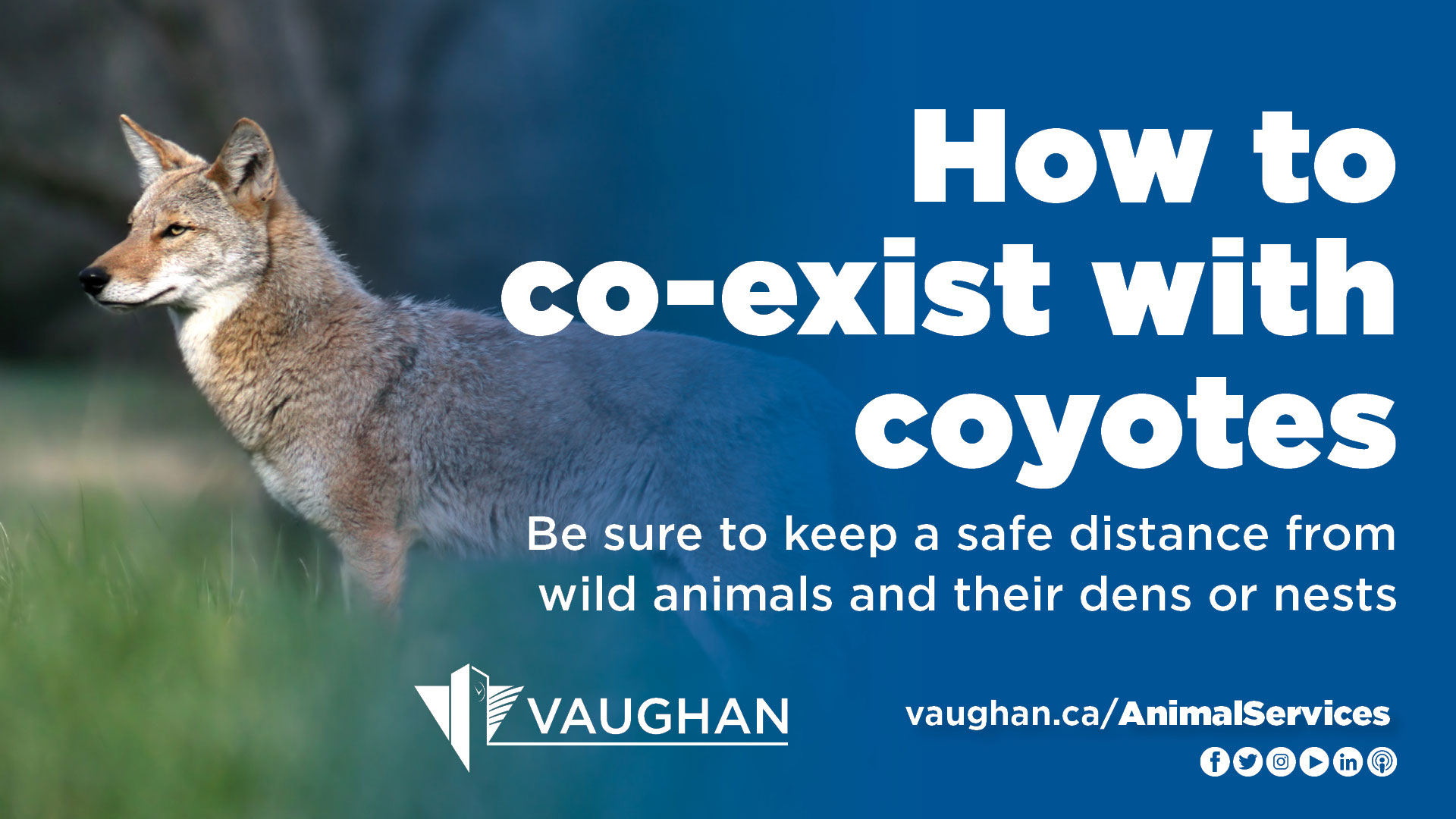“My beloved toy poodle was savagely attacked on Saturday night in Thornhill by a coyote that had jumped the fence into our garden,” reads a prominent post from late last year on the “Vaughan Coyote” group on Facebook. “She had to be put down […] as she was so badly injured and suffering.”
It’s not your imagination—incidents like this have become more common since the pandemic, from coyote sightings in the middle of downtown Toronto to people being followed through their neighbourhoods in Burlington.
And while municipalities like the City of Vaughan have reported a decrease in sightings and encounters since the peak of COVID lockdowns, they’re still telling residents to exercise caution—and that includes members of the Jewish community.
According to Dr. Debrah Berman, a veterinarian with the Thornhill Veterinary Clinic, the increase in coyote incursions can be chalked up to factors related to COVID-19. She says she’s seen six pet fatalities as a result of coyote attacks in her practice, consisting of smaller dogs like Pomeranians and chihuahuas, and cats. She also states that she’s personally been followed by a coyote down Erica Avenue.
“When people were inside, animals began roaming the streets more often,” she says. “Waste was not being picked up from garbage bins, and there’s still quite a bit of garbage on the ground.”
She also says that coyotes can be helpful, especially with the coming subway expansion and ground-breaking. “They can help control the squirrel and rat populations,” says Dr. Berman. “And if the ground gets dug up for a new subway, the rat problem is going to get worse. They are truly beautiful animals. Shipping them elsewhere or hunting and trapping them is not the solution .”
The solution, then, is to learn to coexist peacefully with the coyotes. It’s a message that Vaughan councillor Gila Martow has been working with the city to reinforce.
An information session was hosted at the Rosemount Community Centre on Feb. 1, and drop-in sessions are currently being offered by Vaughan Animal Services at the Dufferin Clark Community Centre.
Residents are being instructed to do the following:
- Keep a safe distance from coyotes and keep pets on a short leash
- If a coyote approaches you directly, stop and pick up children and small pets, if necessary
- Stand your ground: never run from a coyote, fox or domestic dog. Instead, slowly back away: be assertive as you leave so the animal knows it is not welcome
- Make yourself big: wave your hands above your head. Be loud and assertive: shout, stomp your feet and clap your hands. Use a noisemaker: it could be your voice, pots and pans banged together, a shaker can (such as a pop can filled with pebbles), a plastic bag (snap it around), or an umbrella popping open and closed
- To discourage coyotes from visiting a property, remove bird feeders, ponds and fruit trees as they can attract small mammals, which encourage larger wild animals to visit their yard
Martow is continuing to work with her council colleagues and other levels of govenment: “I am committed to finding effective solutions and working with all stakeholders to address the coyotes in Ward 5. We continue to be committed to safeguarding the quality of life for residents and their neighbourhoods, including protecting households and family pets,” her statement read.
For their part, Vaughan Animal Services has been liaising with Coyote Watch Canada and the provincial Ministry of Natural Resources and Forestry, as well as monitoring what other municipalities in Ontario have been doing about the problem. They strongly discourage feeding the animals—which is subject to a $500 fine—or trapping and killing the coyotes—which would draw a fine of $900. (To date, no instances of anyone trapping or killing a coyote have been reported.)
Dr. Berman instead endorses a unique solution that she has seen in the community: carrying a coyote stick. “These are simply large, pointy sticks that residents are taking with them on walks. Poking a coyote is a safe way to let it know it is not welcome.”
She also has identified several locations where coyotes may be hiding out. “There are colonies near Oak Bank Pond on Centre Street. You can hear them howling if you go there. They’ve also been seen at the corner of Thornridge and Arnold, in Heffhill Park on Clark, near Spring Gate Boulevard, and Golfer’s Gate.”
Finally, she emphasized getting your pet vaccinated and regularly checked for fleas, ticks, and parasites: “I’ts important to remember that coyotes are carriers of dangerous diseases such as rabies, parvo and distemper.”
For more information and tips, you can visit vaughan.ca/AnimalServices or watch the city’s video. To report a coyote sighting you can contact Service Vaughan at 905-832-2281 or [email protected].
